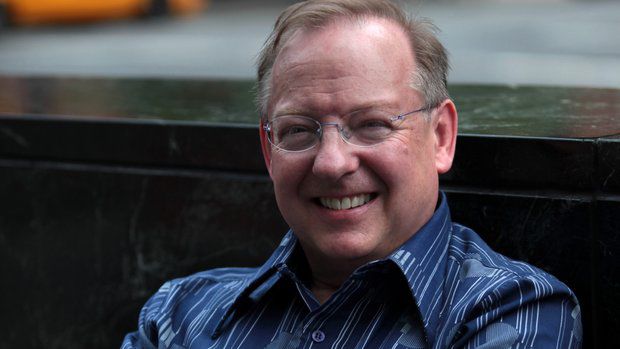Choir provides the highlights in McGegan’s abridged and speedy NSO “Messiah”

Nicholas McGegan conducted the National Symphony Orchestra in Handel’s “Messiah” Thursday night at the Kennedy Center.
Handel’s Messiah is an outlier among the composer’s oratorios, not least in the way that most of its dramatic weight is borne by the chorus. That is the aspect underscored by the National Symphony Orchestra’s performance of the work Thursday night in the Kennedy Center Concert Hall. In an interpretation streamlined by early music specialist Nicholas McGegan, the outstanding University of Maryland Concert Choir was the star.
McGegan is the long-time leader of San Francisco’s Philharmonia Baroque Orchestra, which he will depart (and become music director laureate) after the 2019-2020 season. The conductor’s emphasis in his Messiah, as last heard with the NSO in 2014, was on speed. With nine numbers cut from the second half of the oratorio (Parts II and III), racing tempos, and few pauses between movements, it was over after two hours and fifteen minutes (including the intermission and the longest late seating interval in recent memory).
With the tempo extremes McGegan drew sleek sounds from this small, talented chorus. They stood on the chorister bleachers on the lower level of the stage, right behind the even smaller orchestra. This placement brought their balanced voices directly to the ears, so that every contrapuntal entrance and shading of phrase was clear, usually individualized by different articulations. McGegan used the fast pacing to create smooth, long lines and expressive melodic contours, interrupted by fewer breaths.
Baritone William Berger delivered his recitatives with operatic urgency and blustery fortitude and displayed agile runs in his florid arias. “Why do the nations,” in particular, shuddered with energy, Berger’s raging voice matched by manic scales added to the continuo part by harpsichordist William Neal. The apocalyptic fervor of his last aria, “The trumpet shall sound,” was amplified by the polished peals of principal trumpeter William Gerlach.
Soprano Yulia van Doren showed even more remarkable fluidity and accuracy in the astounding runs of the showpiece aria “Rejoice greatly,” taken at an absurdly fleet tempo. An announcement revealed that she had been ill the last couple days, which explained her avoidance of some of the more exposed high notes. Kudos to her for soldiering through the performance.
When it came to heraldic strength, tenor Miles Mykkanen excelled, muscling his way through arias like “Thou shalt break them.” (The odd decision to clap his score shut at the end garnered a few laughs in the audience.) He had a more subtle side at his disposal, heard in the opening recitative “Comfort ye,” but the more demanding melismatic passages in “Every valley,” for example, were mushy and approximated. A mistimed entrance near the end of “But thou didst not leave” also caused some confusion.
Mezzo-soprano Meg Bragle’s finest moments came in the softer moments of the mournful aria “He was despised.” Her chest voice tended toward brazen harshness, made more curious by some strange distortions of vowels. On the positive side she added the most enlivening ornaments to her arias.
The NSO, pared down to a couple dozen strings, sounded lean and incisive, with McGegan carefully keeping their volume below his soloists and especially below the chorus. This brought the addition of the trumpets to the fore, a regal timbre that sounded first from the balcony above the stage, a nice touch added to the chorus “Glory to God.” A small organ played by Gary Davison provided variety on the continuo part, in alternation with the harpsichord, anchored by lead cellist Eugena Chang.
One of the most striking moments was in the final movement, the serene, fugal “Amen,” where the choir began without the orchestra, shadowed only by soft organ. The strings came in only at their first interlude, followed by the whole orchestra with the triumphant return of the chorus—another example of McGegan putting the choir in the spotlight.
The program will be repeated 8 p.m. Friday and Saturday and 1 p.m. Sunday. kennedy-center.org; 202-467-4600
